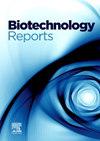糖工程植物产生的Pembrolizumab增强FcRn结合并延长小鼠血清半衰期
Q1 Immunology and Microbiology
引用次数: 0
摘要
植物系统为抗体生产提供了可扩展且具有成本效益的平台,但植物特异性聚糖可能会影响药代动力学和免疫原性。为了评估Fc糖基化的影响,在benthamiana中产生了四种Pembrolizumab糖变体:野生型糖基化(pembrowt),高甘露糖与SEKDEL (pembrokd),糖基化N297A突变体(pembrong)和核心焦点/木糖缺乏变体(pembroxf)。糖蛋白在野生型或ΔXF植物中短暂表达,经过纯化,并被表征为聚糖组成、体外结合和体内药代动力学。LC-MS证实了不同的糖型模式,而PD-1结合在所有变体中都保留。与pembrom - wt (26.7 h)、pembrom - kd (32.95 h)、pembrom - ng (34.27 h)和Keytruda®(33.26 h)相比,pembrom - xf在小鼠中表现出最高的FcRn结合亲和力和最长的血清半衰期(45.83 h)。作为初步疗效评估,pemm - wt在小鼠结肠癌模型中显示出较强的抗肿瘤活性。这些发现支持植物糖工程作为增强抗体药代动力学和推进下一代抗体治疗的策略。本文章由计算机程序翻译,如有差异,请以英文原文为准。
Glycoengineering of plant-produced Pembrolizumab enhances FcRn binding and extends serum half-life in mice
Plant systems offer scalable and cost-effective platforms for antibody production, but plant-specific glycans may affect pharmacokinetics and immunogenicity. To evaluate the impact of Fc glycosylation, four Pembrolizumab glycovariants were generated in Nicotiana benthamiana: wild-type glycosylation (Pembro-WT), high-mannose with SEKDEL (Pembro-KD), aglycosylated N297A mutant (Pembro-NG), and a core fucose/xylose-deficient variant (Pembro-XF). Glycoproteins were transiently expressed either in wild-type or ΔXF plants, purified, and characterized for glycan composition, in vitro binding, and in vivo pharmacokinetics. LC-MS confirmed distinct glycoform patterns, while PD-1 binding was retained across all variants. Pembro-XF showed the highest FcRn binding affinity and longest serum half-life (45.83 h) in mice, compared to Pembro-WT (26.7 h), Pembro-KD (32.95 h), Pembro-NG (34.27 h), and Keytruda® (33.26 h). As an initial efficacy evaluation, Pembro-WT demonstrated strong antitumor activity in a murine colon cancer model. These findings support plant glycoengineering as a strategy to enhance antibody pharmacokinetics and advance next generation antibody therapeutics.
求助全文
通过发布文献求助,成功后即可免费获取论文全文。
去求助
来源期刊

Biotechnology Reports
Immunology and Microbiology-Applied Microbiology and Biotechnology
CiteScore
15.80
自引率
0.00%
发文量
79
审稿时长
55 days
期刊介绍:
Biotechnology Reports covers all aspects of Biotechnology particularly those reports that are useful and informative and that will be of value to other researchers in related fields. Biotechnology Reports loves ground breaking science, but will also accept good science that can be of use to the biotechnology community. The journal maintains a high quality peer review where submissions are considered on the basis of scientific validity and technical quality. Acceptable paper types are research articles (short or full communications), methods, mini-reviews, and commentaries in the following areas: Healthcare and pharmaceutical biotechnology Agricultural and food biotechnology Environmental biotechnology Molecular biology, cell and tissue engineering and synthetic biology Industrial biotechnology, biofuels and bioenergy Nanobiotechnology Bioinformatics & systems biology New processes and products in biotechnology, bioprocess engineering.
 求助内容:
求助内容: 应助结果提醒方式:
应助结果提醒方式:


